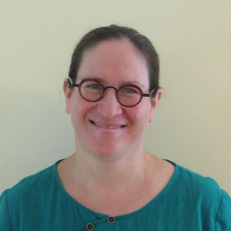
"Reactions to the Holocaust: Insight, Actions, and Inactions"
Professional Background
Havi Dreifuss is a history professor in the Department of Jewish History at Tel Aviv University, where she also heads the Institute for the History of Polish Jewry and Israel-Poland Relations. She also leads the Center for Research on the Holocaust in Poland at the International Institute for Holocaust Research, Yad Vashem. Her previous research has dealt with various aspects of everyday life during the Holocaust, including the relationship between Jews and Poles, religious life in light of the Holocaust, and Jewish existence in the face of extermination.
She is the author of numerous publications, including Relations Between Jews and Poles: The Jewish Perspective (2012) and Warsaw Ghetto—The End (Hebrew 2018, now being translated into English and Polish). Dreifuss twice held the Mandel Center’s Phyllis Greenberg Heideman and Richard D. Heideman fellowship in 2009 and again in 2015–2016.
Fellowship Research
As the 2022–2023 Shapiro Senior Scholar-in-Residence, Professor Dreifuss will work on three topics: the Warsaw Ghetto Uprising; Religious Life during the Holocaust; and Reactions to the Holocaust. The first two are elaborations of scholarly works she did as part of her earlier Mandel Center fellowships. After focusing on Jews’ daily life before and during the Warsaw Ghetto Uprising, and as part of activities related to the 80th anniversary of the Warsaw Ghetto Uprising, Dreifuss will examine new aspects of the Jewish fighting organizations (ZZW, ZOB) to lead to new assessments of their actions during the revolt. Additionally, as part of analyzing the experiences of Orthodox Jews as a way to better understand the destructive processes that Jewish society underwent during the Holocaust, she will pose questions regarding leadership, Orthodox reactions, and rescue. Uprisings and different aspects of Jews’ religious observance are often considered supplementary parts of resistance during the Holocaust.
Dreifuss’s third research theme aims to question prevailing understandings and analyze changing European insights, actions, and inactions during the Holocaust. This project seeks to explore and depict how Nazi Germany's practical steps were understood in different countries before and during the mass murder of the Jews, and to analyze actions and inactions that, seen in the context of brutality, were common human reactions in specific periods and for particular groups. Although this research initiative focuses on Germany and Poland, it aims to expand to other countries, including the Netherlands, France, Italy, Lithuania, Ukraine, and Hungary. The comparative examination of Europeans’ different responses could contribute to a renewed conceptualization of human responses to the Holocaust.
All three projects depend on the rich documentation preserved in the Museum’s archives, such as diaries, wartime accounts, letters, official documents, oral and written post-war memories, and testimonies given in various trials. Moreover, the Museum’s expert staff and other visiting scholars at the Mandel Center enable a discussion of these topics and to explore them from various points of view.
